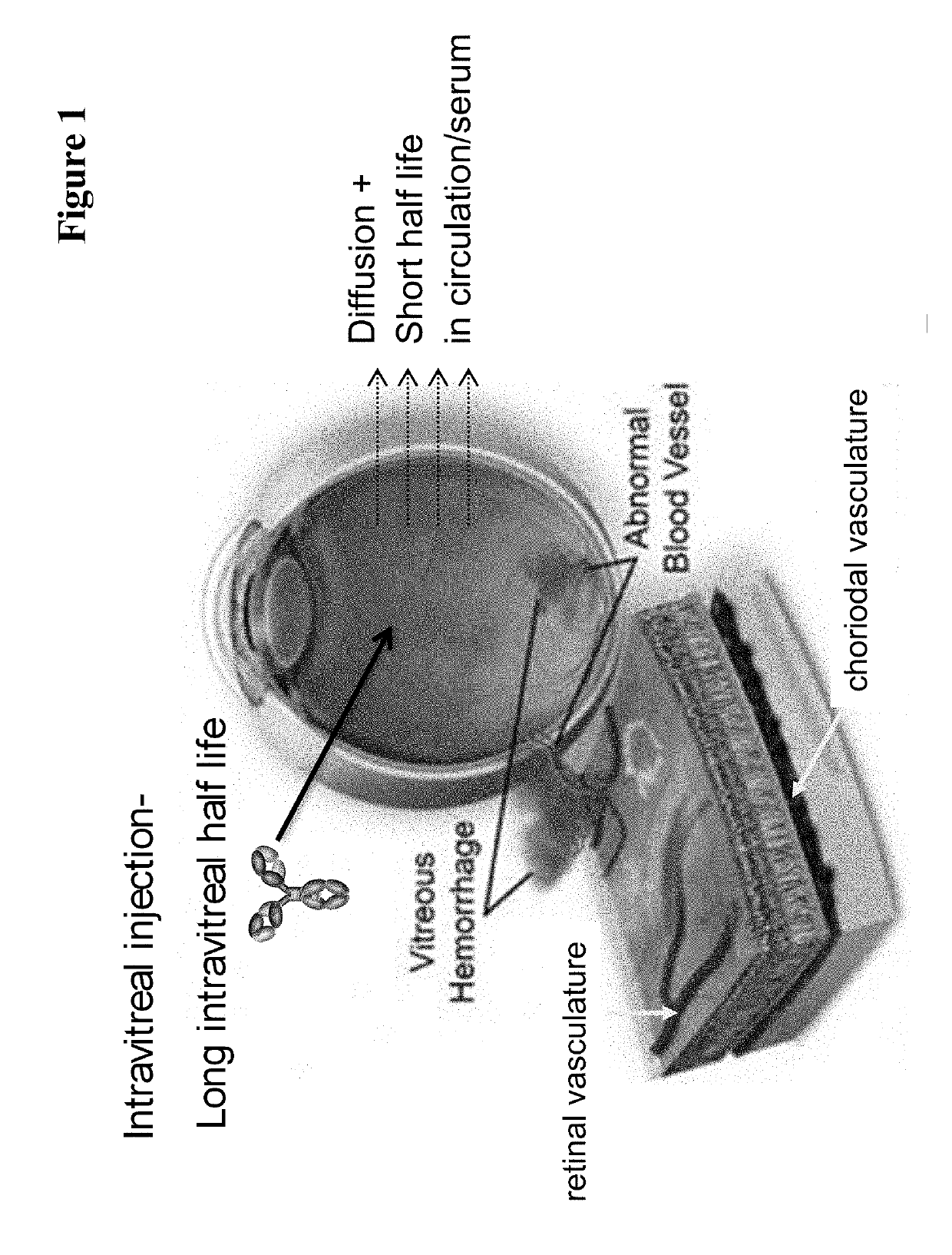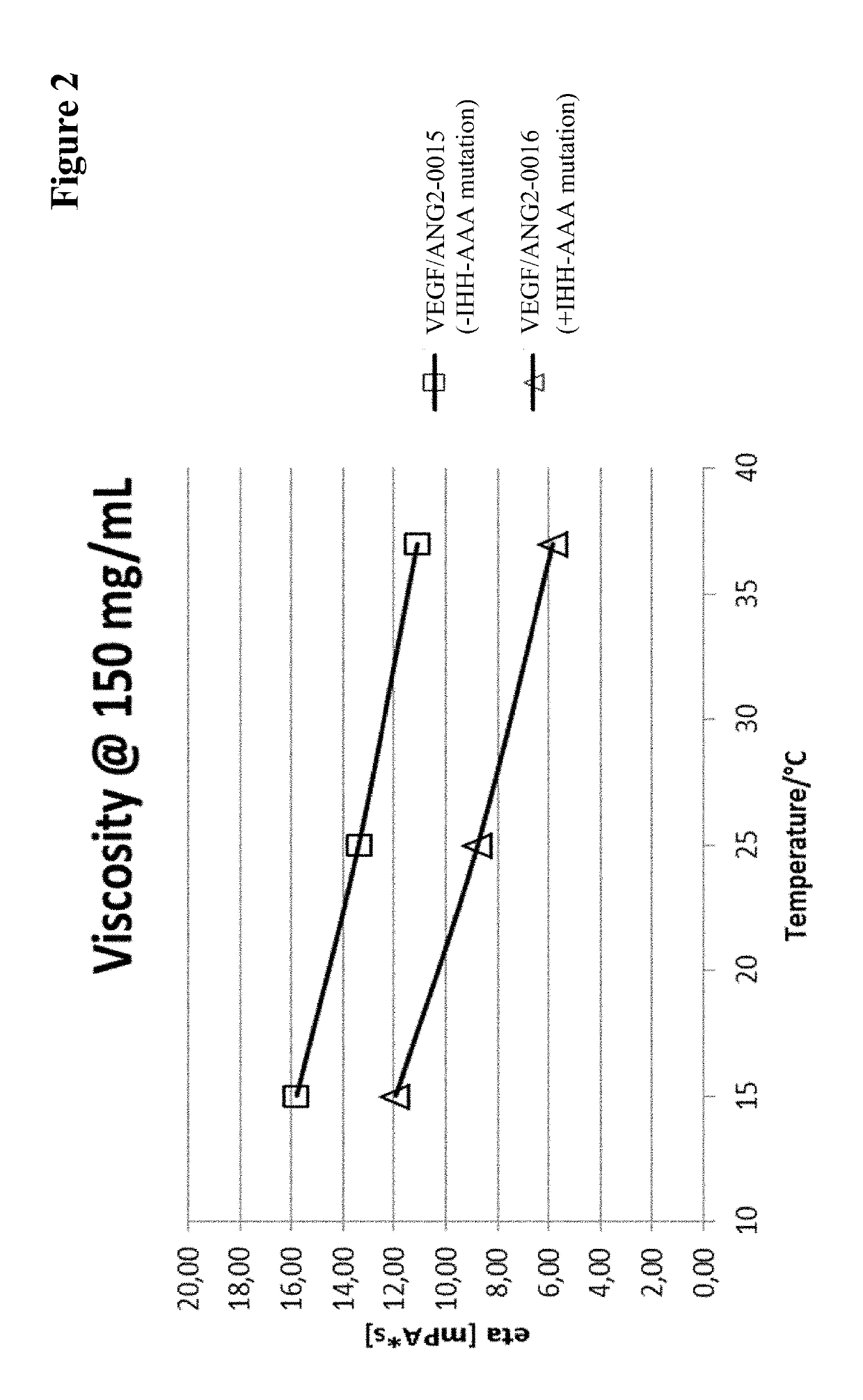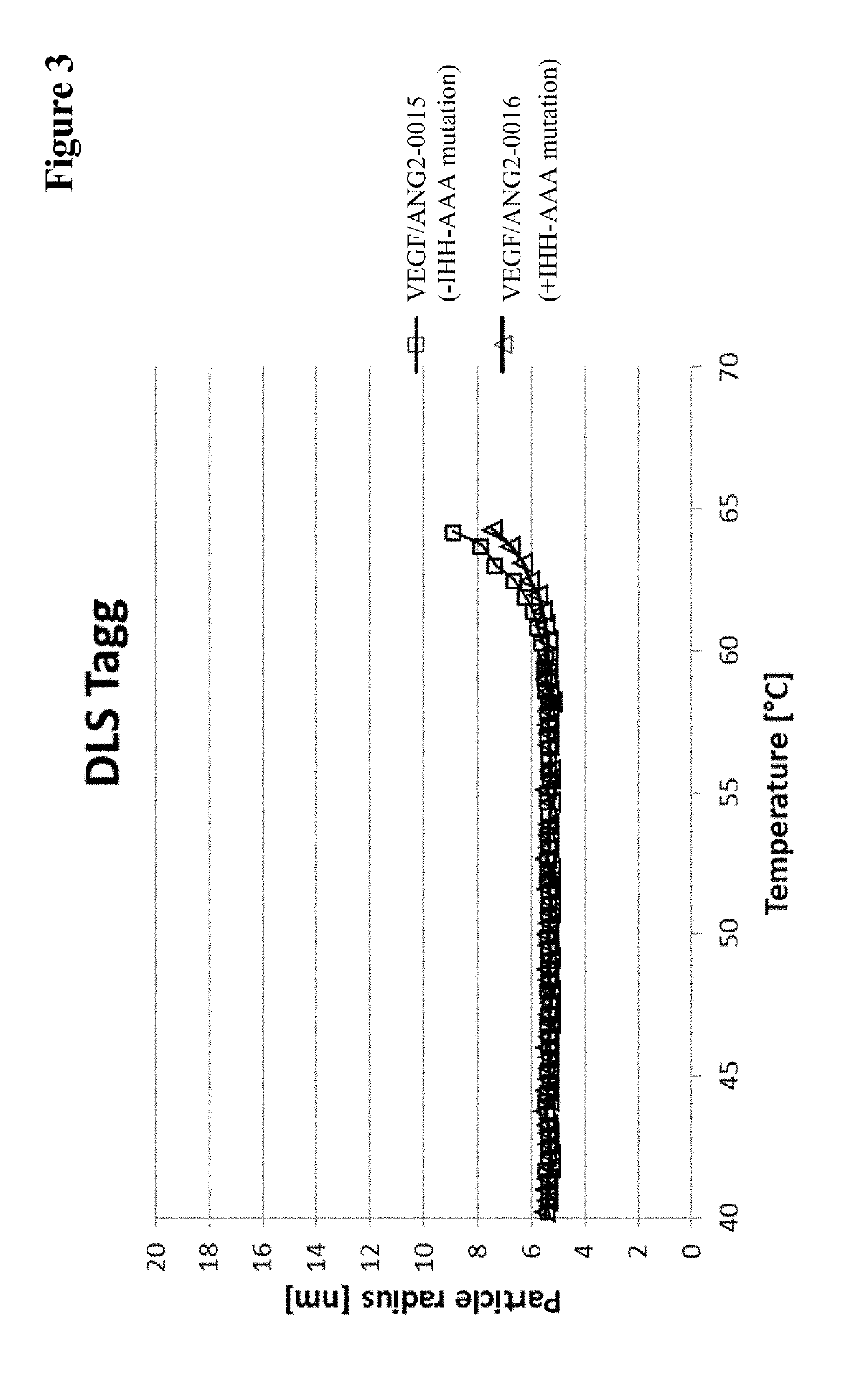Fc-region variants with improved protein a-binding
a region variant and protein a-binding technology, applied in the field of fcregion variants with improved protein a-binding, can solve the problems of reduced clearance, difficult production of bispecific antibodies in one expression cell line, poor yield of 12.5%, etc., and achieve the effect of avoiding systemic side effects
- Summary
- Abstract
- Description
- Claims
- Application Information
AI Technical Summary
Benefits of technology
Problems solved by technology
Method used
Image
Examples
example 1
Expression and Purification
Transient Transfections in HEK293-F System
[0624]The monospecific and bispecific antibodies were generated by transient transfection with the respective vectors (e.g. encoding the heavy and modified heavy chain, as well as the corresponding light and modified light chain) using the HEK293-F system (Invitrogen) according to the manufacturer's instruction. Briefly, HEK293-F cells (Invitrogen) growing in suspension either in a shake flask or in a stirred fermenter in serum-free FREESTYLE™ 293 expression medium (Invitrogen) were transfected with a mix of the respective expression vectors and 293FECTIN™ or fectin (Invitrogen). For 2 L shake flask (Corning) HEK293-F cells were seeded at a density of 1*106 cells / mL in 600 mL and incubated at 120 rpm, 8% CO2. The day after the cells were transfected at a cell density of approx. 1.5*106 cells / mL with approx. 42 mL mix of A) 20 mL Opti-MEM (Invitrogen) with 600 μg total vector DNA (1 μg / mL) encoding the heavy or modi...
example 2
Analytics & Developability
Small-Scale DLS-Based Viscosity Measurement.
[0631]Viscosity measurement was essentially performed as described in (He, F. et al., Analytical Biochemistry 399 (2009) 141-143). Briefly, samples are concentrated to various protein concentrations in 200 mM arginine succinate, pH 5.5, before polystyrene latex beads (300 nm diameter) and Polysorbate 20 (0.02% v / v) are added. Samples are transferred into an optical 384-well plate by centrifugation through a 0.4 μm filter plate and covered with paraffin oil. The apparent diameter of the latex beads is determined by dynamic light scattering at 25° C. The viscosity of the solution can be calculated as η=η0(rh / rh,0) (η: viscosity; η0: viscosity of water; rh: apparent hydrodynamic radius of the latex beads; rh,0: hydrodynamic radius of the latex beads in water).
[0632]To allow comparison of various samples at the same concentration, viscosity-concentration data were fitted with the Mooney equation (Equation 1) (Mooney, ...
example 3
Binding to VEGF, ANG2, FcgammaR and FcRn
VEGF Isoforms Kinetic Affinity Including Assessment of Species-Cross-Reactivity
[0638]Around 12,000 resonance units (RU) of the capturing system (10 μg / mL goat anti human F(ab)′2; Order Code: 28958325; GE Healthcare Bio-Sciences AB, Sweden) were coupled on a CM5 chip (GE Healthcare BR-1005-30) at pH 5.0 by using an amine coupling kit supplied by GE Healthcare. The sample and system buffer was PBS-T (10 mM phosphate buffered saline including 0.05% Tween20) pH 7.4. The flow cell was set to 25° C.—and the sample block set to 12° C.—and primed with running buffer twice. The bispecific antibody was captured by injecting a 50 nM solution for 30 seconds at a flow of 5 μL / min. Association was measured by injection of human hVEGF121, mouse mVEGF120 or rat rVEGF164 in various concentrations in solution for 300 seconds at a flow of 30 μL / min starting with 300 nM in 1:3 dilutions. The dissociation phase was monitored for up to 1200 seconds and triggered by...
PUM
| Property | Measurement | Unit |
|---|---|---|
| pH | aaaaa | aaaaa |
| pH | aaaaa | aaaaa |
| size | aaaaa | aaaaa |
Abstract
Description
Claims
Application Information
 Login to View More
Login to View More - R&D
- Intellectual Property
- Life Sciences
- Materials
- Tech Scout
- Unparalleled Data Quality
- Higher Quality Content
- 60% Fewer Hallucinations
Browse by: Latest US Patents, China's latest patents, Technical Efficacy Thesaurus, Application Domain, Technology Topic, Popular Technical Reports.
© 2025 PatSnap. All rights reserved.Legal|Privacy policy|Modern Slavery Act Transparency Statement|Sitemap|About US| Contact US: help@patsnap.com



